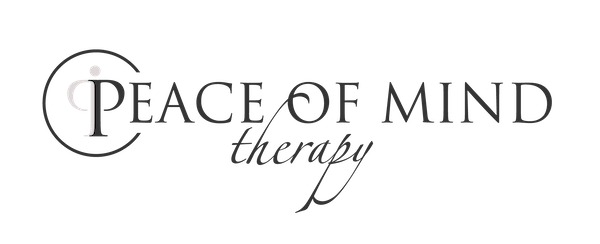The Bridge Book List
As clinicians, we value authors who share their knowledge and research in the field of mental health. We believe offering vetted book recommendations to our clients supports their healing and puts them in the driver’s seat of their therapy experience. Another tool to deepen their curiosity and expand their growth outside the therapy office.
We have put together (and will continue to grow) a few of our top favorite texts. Check them out.
“We read to know that we are not alone.”
C.S. Lewis
TRAUMA
1. The Body Keeps the Score: Brain, Mind, and Body in the Healing of Trauma, by Bessel van der Kolk, M.D.
Trauma is a fact of life. Veterans and their families deal with the painful aftermath of combat; one in five Americans has been molested; one in four grew up with alcoholics; one in three couples have engaged in physical violence. Dr. Bessel van der Kolk, one of the world’s foremost experts on trauma, has spent over three decades working with survivors. In The Body Keeps the Score, he uses recent scientific advances to show how trauma literally reshapes both body and brain, compromising sufferers’ capacities for pleasure, engagement, self-control, and trust. He explores innovative treatments—from neurofeedback and meditation to sports, drama, and yoga—that offer new paths to recovery by activating the brain’s natural neuroplasticity. Based on Dr. van der Kolk’s own research and that of other leading specialists, The Body Keeps the Score exposes the tremendous power of our relationships both to hurt and to heal—and offers new hope for reclaiming lives.
MOOD DISORDER
2. The Depression Cure: the 6-Step Program to Beat Depression Without Drugs, by Stephan S. Ilardi
Dr. Stephen Ilardi sheds light on our current predicament and reminds us that our bodies were never designed for the sleep-deprived, poorly nourished, frenzied pace of twenty-first century life. Inspired by the extraordinary resilience of aboriginal groups like the Kaluli of Papua New Guinea, Dr. Ilardi prescribes an easy-to-follow, clinically proven program that harks back to what our bodies were originally made for and what they continue to need with these six components:
Brain Food
Don’t Think, Do
Antidepressant Exercise
Let There Be Light
Get Connected
Habits of Healthy Sleep
The Depression Cure‘s holistic approach has been met with great success rates, helping even those who have failed to respond to traditional medications. For anyone looking to supplement their treatment, The Depression Cure offers hope and a practical path to wellness for anyone.
RELATIONSHIP SUPPORT
3. Hold Me Tight, by Dr. Sue Johnson
This idea, once controversial, is now supported by science, and has become widely popular among therapists around the world. In Hold Me Tight, Dr. Sue Johnson presents Emotionally Focused Therapy to the general public for the first time. Johnson teaches that the way to save and enrich a relationship is to reestablish safe emotional connection and preserve the attachment bond. With this in mind, she focuses on key moments in a relationship-from “Recognizing the Demon Dialogue” to “Revisiting a Rocky Moment” — and uses them as touch points for seven healing conversations.
Through case studies from her practice, illuminating advice, and practical exercises, couples will learn how to nurture their relationships and ensure a lifetime of love.
PARENTING SUPPORT
4. The Whole-Brain Child: 12 Revolutionary Strategies to Nurture Your Child’s Developing Mind, by Daniel J. Siegel M.D., and Tina Payne Bryson, Ph.D.
In this pioneering, practical book, Daniel J. Siegel, neuropsychiatrist and author of the bestselling Mindsight, and parenting expert Tina Payne Bryson offer a revolutionary approach to child rearing with twelve key strategies that foster healthy brain development, leading to calmer, happier children. The authors explain—and make accessible—the new science of how a child’s brain is wired and how it matures. The “upstairs brain,” which makes decisions and balances emotions, is under construction until the mid-twenties. And especially in young children, the right brain and its emotions tend to rule over the logic of the left brain. No wonder kids throw tantrums, fight, or sulk in silence. By applying these discoveries to everyday parenting, you can turn any outburst, argument, or fear into a chance to integrate your child’s brain and foster vital growth.
Complete with age-appropriate strategies for dealing with day-to-day struggles and illustrations that will help you explain these concepts to your child, The Whole-Brain Child shows you how to cultivate healthy emotional and intellectual development so that your children can lead balanced, meaningful, and connected lives.
PERSONAL GROWTH
5. Your Story is Your Power: Free Your Feminine Voice, by Elle Luna and Susie Herrick
In a very real sense, we define ourselves through our stories. If we can truly understand the stories that made us the women we are, including the motivations behind our actions and thoughts, we can take charge of how our future unfolds.
What is at the heart of your story?
Follow the prompts, tools, questions, and advice through a labyrinth of self-discovery to reach the center of your voice, your power, your truth. And then learn how to share that story—and all of your Feminine Power—with a world that needs to hear it.
